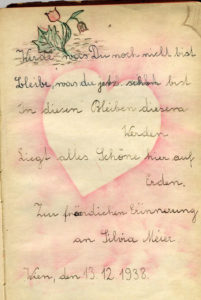My first book Perfection was all about events that happened to me. But by the end of the writing process I had taken a forensic approach to understanding my marriage and was in unknown territory writing about what I didn’t know.
For Eva and Eve research has been key to the writing process. There have been many days when I wished I’d taken a history course during my college years. Instead I’ve had to reach back to high school training (Thank you Mrs Gordon and Mrs Hurwich!) and learn new skills on the job. The good news is that there are so many knowledgeable academics who have written on every aspect of Jewish life from the Habsburg Empire, through WWI, the interwar period of the 1920s and 1930s and then of course through the brutality of the Nazi era. What I have found, without exception, is that when I ask for advice and guidance from people who have devoted their professional lives to analyzing this historical time, they are happy to reciprocate. I have been quite blown away by the generosity of the academic community towards a “lay” writer like myself.
My first takeaway is that whatever you might be writing about, there is someone out there who knows a lot and will be eager to share, as long as they are properly credited for their contribution.
My second takeaway is that research turns out to be deeply satisfying in ways I could never have imagined. Sometimes my problem is deciding when to stop exploring.
My last takeaway: don’t be afraid to tackle a topic you might not know much about. With dedication and patience you can find information you need yourself or with the help of others. Developing a project is always a collaborative process, from beginning to end.
Where to buy the book: Barnes & Noble
